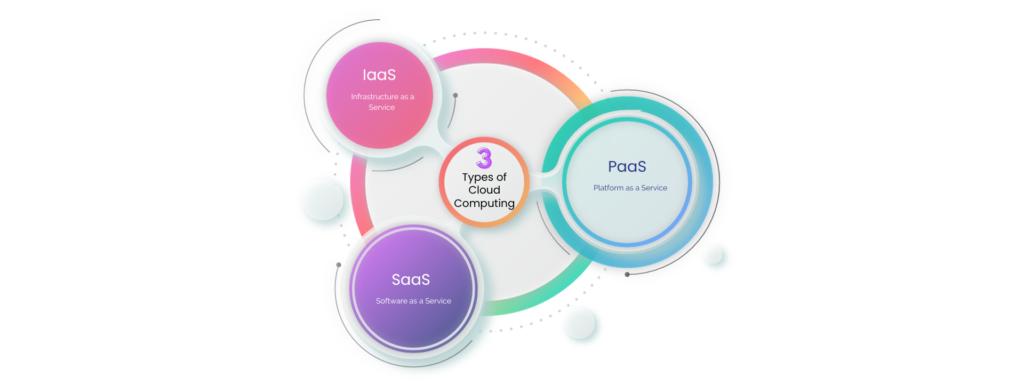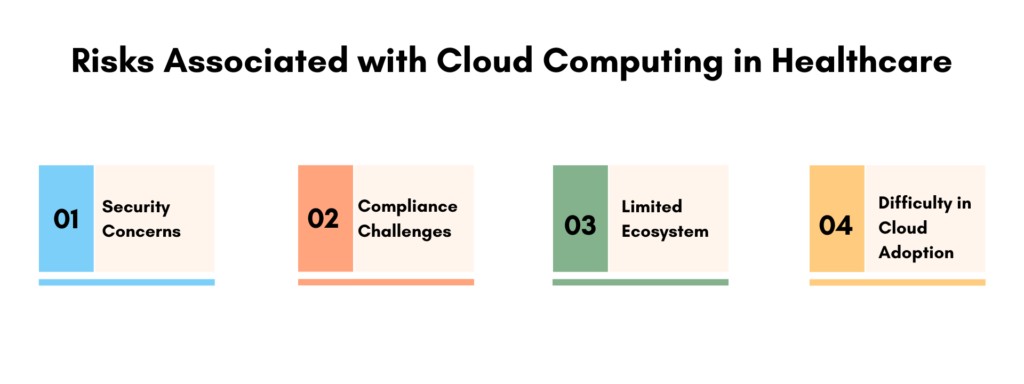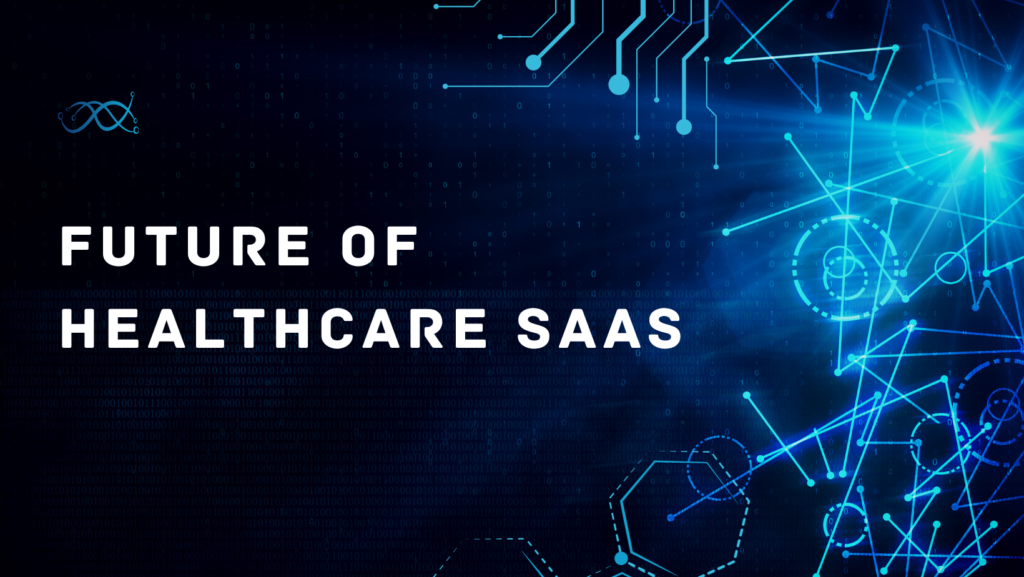The healthcare industry is currently experiencing a substantial digital transformation, impacting multiple facets including security, performance, accessibility, affordability, and beyond. Cloud computing in healthcare has triggered a significant transformation in this sector, revolutionizing the storage, and sharing of medical data.
When discussing how digital transformation is reshaping the healthcare sector, technologies like blockchain, Artificial Intelligence, Machine Learning, IoT, and SaMD (software-based healthcare devices) often come to mind. While these technological trends are crucial enablers for the remarkable growth of healthcare companies, cloud computing serves as the fundamental support for these next-generation innovations.
According to McKinsey estimates cloud-based healthcare solutions generate a value ranging from $100 billion to $170 billion by 2030. This surge in value is attributed to the capacity of cloud computing to empower healthcare organizations to innovate, digitize, and accomplish their strategic goals with greater efficiency.
Let’s delve into the intricate details of how cloud computing is reshaping the landscape of healthcare.

What is Cloud Computing in Healthcare?
In recent times, the healthcare landscape has experienced a remarkable evolution in how data is handled and services are provided, largely driven by the integration of cloud computing. The application of cloud computing in healthcare entails the utilization of distant servers accessible via the Internet to store, manage, and process healthcare data. While this technology brings forth numerous advantages, it is not without its unique set of challenges.
In this blog post, we will navigate the domain of cloud computing in healthcare, exploring its merits, diverse classifications, associated risks, real-world instances, and prospects. Virtualization in cloud computing helps reduce operating costs for medical facilities while allowing them to provide individualized, high-quality care.
Moreover, we will delve into the distinctive role that Digiatto IT Services, an influential technology provider, can assume in catalyzing the widespread adoption of cloud computing within the healthcare sector.
Cloud Computing in Healthcare: A Game-Change
Healthcare cloud computing securely stores health-related data on remote servers, enabling convenient access and seamless collaboration among healthcare professionals. The expansive nature of cloud infrastructure empowers healthcare organizations to flexibly adapt to evolving data storage needs, liberating them from the constraints of physical space.
Within the realm of cloud computing in healthcare, the versatility inherent in cloud services simplifies the conception and implementation of innovative healthcare applications and services, thereby significantly enhancing the overall quality of patient care.
Benefits of Cloud Computing in Healthcare:
The healthcare industry has undergone a significant transformation due to cloud computing, marked by its on-demand availability, widespread data accessibility, and internet-centric services. This shift has been embraced by technology-savvy medical professionals who recognize the multitude of advantages offered by cloud technology in meeting the diverse needs of patients and streamlining business operations. Here are some of the benefits of implementing cloud computing in the healthcare sector:
Reducing Healthcare Costs
A primary benefit of integrating cloud computing into healthcare is the prompt access to resources like data storage and computing power. Furthermore, healthcare organizations enjoy the advantage of not having upfront charges when adopting cloud solutions. They only pay for the resources they use.
Moreover, cloud computing in healthcare establishes an ideal setting for cost-effective scalability. As patient data continuously streams in from various sources such as Electronic Medical Records EMRs, healthcare apps, and wearables, a cloud-based healthcare solution enables seamless expansion of storage capacity while maintaining affordability.
Streamlined Interoperability
Patient Data Ownership
The emphasis on interoperability revolves around creating seamless data integrations across the entire healthcare system, regardless of data origin or storage location. This approach ensures the accessibility of patient data for effortless distribution and insights that enhance healthcare delivery.
Healthcare cloud computing enables medical professionals to access, share, and implement timely protocols using diverse patient data.
Cloud computing applications in the healthcare domain democratize data, giving patients the authority to manage their health information. This enables active patient involvement in critical health decisions, serving as a tool for better patient engagement and education. Moreover, with cloud-based healthcare, medical data can be efficiently archived and retrieved. The heightened system uptime not only significantly reduces data redundancy but also simplifies data recovery processes.
Types of Cloud Computing in Healthcare:
Cloud computing operates within two models for the healthcare industry: Deployment and Distribution.
By Deployment
Private: Reserved for the exclusive use of a single healthcare firm or chain.
Community: Accessible to a collective group of healthcare entities.
Public: Open for access to all stakeholders.
Hybrid: This model integrates multiple clouds with diverse access options.
By Distribution

- Infrastructure as a Service (IaaS): Offers healthcare organizations the capability to outsource their infrastructure requirements by providing virtualized computing resources accessible over the internet.
- Platform as a Service (PaaS): Empowers healthcare professionals with a specialized platform, facilitating the creation, operation, and supervision of applications, all without the necessity to manage the underlying infrastructure.
- Software as a Service (SaaS): Software as a Service Sends software applications via the internet, removing the necessity for installing and maintaining them on individual devices.
Risks Associated with Cloud Computing in Healthcare:

Security Concerns
Storing sensitive patient information on the cloud raises concerns about data security and privacy breaches. Unauthorized access or cyber attacks can expose patient records, leading to serious consequences for both patients and healthcare providers.
Compliance Challenge
Healthcare data is subject to stringent regulations like HIPAA in the United States (US) and GDPR in Europe. Healthcare organizations using cloud services must ensure compliance with these regulations, including data storage, handling, and sharing, which can be complex and challenging.
Limited Ecosystem
The utilization of cloud services alone in healthcare is insufficient for optimizing the industry. To establish an effective analytics architecture, organizations must integrate cloud computing with the Internet of Things and data management systems.
Difficulty in Cloud Adoption
Switching the legacy systems to cloud systems requires changing the complete operational process. Organizations must integrate cloud computing with the Internet of Things and data management systems to create an efficient analytics framework.
Real-World Examples of Cloud Computing in Healthcare:
Cloud computing has become an integral component of the healthcare sector, presenting various advantages to businesses within the industry. Below are real-world instances of companies experiencing significant benefits from the transformative impact of cloud computing on healthcare.
These examples illustrate how the adoption of cloud computing in healthcare contributes to the improvement of patient care, operational efficiency, collaborative efforts, and data management, ultimately enhancing the overall effectiveness of medical services.
YouCOMM
YouComm is an emerging healthcare technology leveraging the power of cloud computing to elevate patient communication and engagement. The company employs a highly adaptable patient messaging system, allowing individuals to communicate their needs to staff through various methods such as manual selections, voice commands, and head gestures.
Soniphi
Soniphi stands as the pioneering resonant frequencies-based personal wellness system, employing cloud-based healthcare solutions to deliver a comprehensive well-being analysis report directly to patients through their healthcare apps. The cloud infrastructure it utilizes enables early disease diagnosis, remote patient monitoring, and telehealth consultations.
The Future of Cloud Computing in Healthcare
The future of cloud computing in healthcare looks promising, with advancements in AI, machine learning, and edge computing expected to revolutionize patient care, diagnostics, and research. The industry is likely to witness increased integration of cloud-based solutions to address evolving healthcare needs.
How Can Digiatto IT Services Help Adopt Cloud Computing in Healthcare?
Digiatto IT Services offers tailored cloud computing solutions designed specifically for the unique requirements of the healthcare industry. Proficient in data security, compliance, and seamless integration, Digiatto IT Services enables healthcare organizations to harness the advantages of cloud computing while effectively managing associated risks.
Get in touch with us now to embrace cloud computing in healthcare and overcome technical challenges.



Pingback: Digital Transformation in Healthcare Industry - Health SaaS Pro
Pingback: Business Benefits of Virtualization in Cloud Computing - Health SaaS Pro
Pingback: Top Healthcare App Trends in 2024 - Health SaaS Pro
Pingback: Software as a Medical Device - Health SaaS Pro